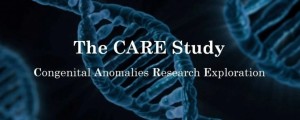Nationwide Children’s Hospital Ea-Tef Survey 2018
Please tick the box next to this website address so the team running this survey know how you found it.
Mr. Wyles
We would greatly appreciate your help in promoting this survey. I have included below some model language for an announcement that you can use or modify in order to meet the needs of your online community. We have encountered a substantial response, but more responses can only improve the quality of the research we are conducting.
Thank You.
Pediatric Minimally Invasive Surgery Dept
Nationwide Children’s Hospital
The survey is available online click on this link,
https://redcap.nchri.org/surveys/?s=X4K94DWDLK
Nationwide Children’s Hospital, in collaboration with the American Academy of Pediatrics Section on Surgery, is conducting research related to the care of children with esophageal atresia and tracheo-esophageal fistula. The study examines issues related to the transition of care (from pediatric to adult health care providers) and consists of a single, web-based survey for parents (and even older adolescent / young adult patients). The survey length varies depending on clinical history, but time to complete all questions should be less than 15 minutes. No identifying information is required, although email addresses can be provided (optionally) if you wish to participate in a future survey that examines the quality of life for children with esophageal atresia and tracheo-esophageal fistula.
More information is available at:
Esophageal Atresia / Tracheo-Esophageal Fistula Transition of Care Survey
Thank you for your interest in this study of children growing up after surgical repair of Esophageal Atresia (EA or OA) and Tracheo-Esophageal Fistula (TEF or TOF). This document provides information related to this research project as well as contact information, should additional questions arise.
Who we are
This survey is being conducted by the Department of Pediatric Surgery at Nationwide Children’s Hospital (Columbus, OH, USA) in collaboration with the American Academy of Pediatrics (AAP) Section on Surgery. This research has been reviewed and approved by the Institutional Review Board at the Nationwide Children’s Hospital and the Principal Investigator is Dr. Karen Diefenbach, one of our pediatric surgeons.
What is being studied?
We are trying to determine whether certain children with TEF / EA are more or less likely to continue to be cared for by pediatric physicians. Some children are ultimately cared for by physicians and specialists that mainly treat adults. The information we gather should help us determine which path a patient might follow and why. We also hope to learn more about the quality of life and types of symptoms that can be expected for children with EA / TEF as they get older.
What data will be collected?
We will collect the following categories of information
- The type of problem that the esophagus originally had
- The kinds of procedures and medicines that were used to treat the problem
- Information about the affected child (age, gender, other health problems)
- The child’s age at the time when the procedures were done.
- The country in which the child now lives
- The kinds of doctors that care for the child and how often the child is seen by those doctors.
- The kinds of information and advice that were provided to the child and to his or her parents
- Problems the child continues to have related to having EF / TEA or related to the procedures that were used to treat it.
- Respondents who would like to volunteer to participate in a future study examining the quality of life for children with EA / TEF will be able to provide an email address to be notified when that survey becomes available. Sharing an email address is voluntary and collected addresses will not be used for any other purpose.
How will data collected be secured?
https://docs.google.com/document/d/1mwbMt17Uz8Rvi8TQEmeqATYuit1MvQqgGH_cj8yCAH0/edit
The research team will maintain the data collected on a secure web server maintained by the Research Institute at Nationwide Children’s Hospital until the window to collect responses has ended (approximately 3 months). The data will then be removed from the server for analysis. The data will then be stored on a secure server within the Nationwide Children’s Hospital network and protected with the same safeguards as those used for patient data. The information will be analyzed by the research team and the results of this analysis will be submitted for publication to scientific journals. The published data should help doctors who care for children with EA / TEF but will not contain information about particular people who responded to our survey.
How can I participate?
The survey is available online click on this link, http://j.mp/2y9OEyS
Please submit only one response for each child with EA / TEF or Tofs
I still have questions
Please direct inquiries to the Study Coordinator at [email protected]
The Institutional Review Board of Nationwide Children’s Hospital can also be reached at +1 (614) 722-2708.


